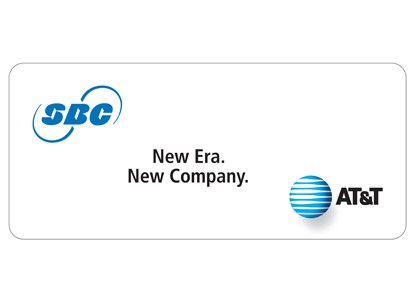Federal Communications Commission Chairman Julius Genachowski has gotten the message. After a report earlier this week in the Washington Post that the chairman was contemplating leaving broadband unregulated, without Net Neutrality protections, thousands of calls and e-mail messages poured into FCC headquarters protesting the report and asking for action. Many also called their members of Congress and the White House demanding the administration keep its word on broadband reform policies.
Late Wednesday, the Wall Street Journal published news that Genachowski had apparently changed course:
In a move that will stoke a battle over the future of the Internet, the federal government plans to propose regulating broadband lines under decades-old rules designed for traditional phone networks.
The decision, by Federal Communications Commission Chairman Julius Genachowski, is likely to trigger a vigorous lobbying battle, arraying big phone and cable companies and their allies on Capitol Hill against Silicon Valley giants and consumer advocates.
Breaking a deadlock within his agency, Mr. Genachowski is expected Thursday to outline his plan for regulating broadband lines. He wants to adopt “net neutrality” rules that require Internet providers like Comcast Corp. and AT&T Inc. to treat all traffic equally, and not to slow or block access to websites.
The Journal’s framing language about “decades-old rules” aside, the decision by the chairman to reclassify broadband as a “telecommunications service” was the only way forward for an agency who had its authority cut from beneath it by a recent court decision.
The news that Genachowski was considering leaving things as-is, totally deregulated, met with opposition from both leaders of the House and Senate Commerce Committees which have jurisdiction over the FCC. Rep. Henry Waxman (D-California) and Sen. Jay Rockefeller (D-West Virginia) wrote Genachowski urging the Commission to consider “all viable options” to regain authority over broadband. When Congress speaks, the FCC listens.
The Commission had two choices — keeping broadband “regulated” under Title I of the Telecommunications Act under the now court-discredited “information service” paradigm, or reclassifying it under Title II as a “telecommunications service,” where the Commission enjoys the prospect of already court-tested and approved authority to regulate. Either way assured legal challenges, but under Title II the Commission faced just a single lawsuit to reaffirm its authority to regulate such services. Under Title I, every reform attempted by the Commission would face provider lawsuits, with precedent on the side of the cable and phone companies to win.

Net Neutrality opponents claim the policy would be ruinous to broadband providers, but when SBC and AT&T merged into a new super-sized AT&T, the company agreed to adhere to Net Neutrality guidelines for two years and didn't suffer any ill effects.
The telecommunications industry and their allies have attempted to frame such reclassification as a government takeover or regulation of the Internet. Some of these companies even threaten to challenge any reclassification as a violation of their First Amendment rights, an absurd notion for a company that transports content from third parties to its customers. Since when does a provider get to assert ownership over speech from someone else? It’s overreach like this that helped fuel the demand for Net Neutrality in the first place. The policies the FCC seeks to enact as part of the National Broadband Plan, including Net Neutrality, do not regulate or “take over” the Internet — it guarantees that providers can’t block or control that content for monetary gain.
Genachowski is signaling he’s intent on reclassifying broadband not to saddle broadband providers with 1940s telephone regulations, but to assure the Commission and the Administration it can bring the National Broadband Plan to reality without provider roadblocks thrown up along the way.
Sources have leaked details to the media that suggest Genachowski will propose a novel “third way” of broadband reclassification — asserting the right to regulate broadband under Title II, but exempting broadband providers from most of the regulatory provisions that were written to deal with Ma Bell. In other words, the changes would turn the clock back, before the DC Circuit Court threw out the FCC’s regulatory authority to spank Comcast for throttling its customers’ broadband speeds. With Title II authority in place, Genachowski hopes a court hearing the same case would have found for the FCC, not against it.
The telecommunications industry has already gone over the top suggesting Genachowski’s plan represents Broadband Armageddon.
One of the industry’s good friends is Senator John Ensign (R-Nevada). He has their talking points down word for word:
“Using this heavy-handed approach to regulation … will jeopardize private investment and innovation in broadband and inject regulatory uncertainty throughout the entire Internet,” Ensign said in a statement.
“We would expect a profoundly negative impact on capital investment,” warned Stanford Bernstein analyst and lover of big cable Craig Moffett in a research note to clients Wednesday night titled “The FCC Goes Nuclear.”
“The only potential winners are the satellite providers, DirecTV and Dish Network, for whom incremental broadband regulation would dramatically reduce the risk of competitive foreclosure in the video business at the hands of bottleneck broadband providers,” he wrote.
The hue and cry over any broadband regulations or court decisions unfavorable to the industry always results in claims it will “dry up investment,” “retard growth,” or downright ruin the Internet for everyone.
Some in the business press even suggest today’s unveiling of Genachowski’s “third way” represents uncharted waters for America’s broadband story.
But how soon they forget.
When SBC and AT&T won approval to merge, one of the conditions was that the new super-sized AT&T respect Net Neutrality concepts for a period of two years. They agreed:
Net Neutrality
1 . Effective on the Merger Closing Date, and continuing for 30 months thereafter, AT&T/BellSouth will conduct business in a manner that comports with the principles set forth in the Commission’s Policy Statement, issued September 23, 2005 (FCC 05-151).2. AT&T/BellSouth also commits that it will maintain a neutral network and neutral routing in its wireline broadband Internet access service. 15 This’ commitment shall be satisfied by AT&T/BellSouth’s agreement not to provide or to sell to Internet content, application, or service providers, including those affiliated with AT&T/BellSouth, any service that privileges, degrades or prioritizes any packet transmitted over AT&T/BellSouth’s wireline broadband Internet access service based on its source, ownership or destination.
So for two years, AT&T lived under the same rules the FCC seeks to enforce nationwide for all broadband providers. Did the company shut down? No — it grew larger with additional mergers and acquisitions. Did broadband expansion stop? No — AT&T has since unveiled its U-verse service and faster broadband in many cities across its service area. Has it reduced investment in broadband? What do you think AT&T is spending on deploying U-verse?
The sky never fell, the investment never disappeared, and there was no panic in the streets. When consumer protections are enacted, the same companies that are currently proclaiming that such changes will ruin their businesses will be singing a different tune to their Wall Street investors once they are enacted.
Read Chairman Genachowski’s Full Statement Below the Jump!


 Subscribe
Subscribe



